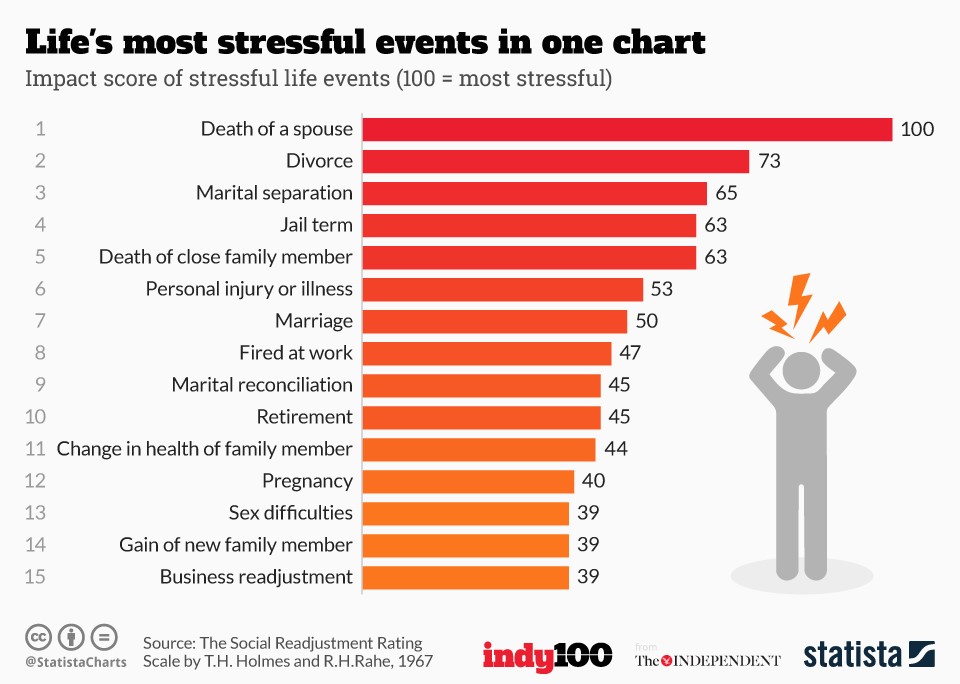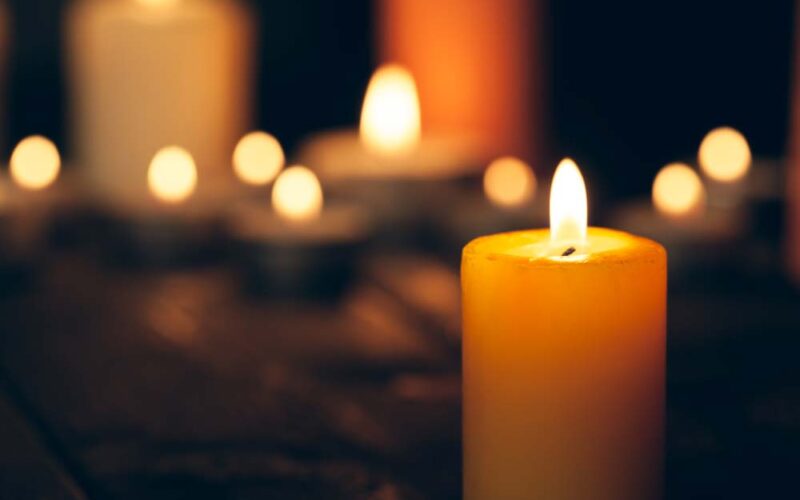What are grief and loss?
Many people have felt grief and experienced loss at one time or another. However, grief is a normal and natural emotional response to the loss of a loved one or something important. This reaction can lead to confusion and disruption in all aspects of our lives, including difficulty concentrating, feeling fidgety and forgetful, problems with eating and sleeping, and mental health problems, such as PTSD.
Data from Statista indicates that the death of a spouse is the most stressful life event, with loss and grief high on the list. This is followed by divorce, marital separation, and prison (Infographic: Life’s most stressful events in one chart, 2021).

Differences in the way death are perceived by religion
・Catholic
Belief means that the deceased will move from this world to eternal life after death. There, the soul can live in heaven, hell, or purgatory. The sacraments are taken from the dead.
・Protestant
Interpretation varies from denomination to denomination, but faith in Jesus Christ and the Bible is central. Belief includes an afterlife.
・Jewish
Tradition values life but does not consider death itself a tragedy. Opinions about the afterlife differ between the Reformed, Conservative and Orthodox religions.
・Buddhist
It is a religion and a way of life that aims to achieve enlightenment. The belief is based on the concept that life is a loop of death and rebirth.
・Native American
Beliefs depend on the tribe. Illness is believed to signify an imbalance with nature. Native Americans believe that the ancestors lead the deceased, and death is a departure to a different world. Family members may or may not attend the death.
・Hindu
Beliefs involve reincarnation, where a person who has died comes back as another person, and karma, which means what goes around comes around.
・Muslim
Muslims generally follow the belief in an afterlife and believe that the body must be promptly buried in order to free the soul.
Differences in the way death are perceived by cultures
Africa
There are more than 3000 tribes in Africa, so it is hard to describe all the ways of accepting death. However, there are some common beliefs because the continent is connected. Nigeria is taken as an example. According to the Cake Blog website, Nigerians believe that when someone dies, God judges their soul and releases them to heaven, and then they are reborn, as they are influenced by Islam and Christianity (Nigerian Funerals: Customs, Ceremony & What to Expect | Cake Blog, 2021).
In Africa, if the descendants and others do not give the deceased a proper funeral and burial, the deceased will wander away because it is believed that the deceased will live on after death.
Asia
Asian perspectives on death are divided between various religions, including Islam, Hinduism, Confucianism, and Buddhism.
Central America
The diverse cultures of countries, such as Panama, Guatemala, and Costa Rica, reflect the significance of the family in both birth and death. Close relatives and well-wishers can ease grief and help. In addition, Latinos do not hesitate to talk about death.
South America
Although the majority of South Americans are Catholics, there are distinctive spiritual beliefs in the Andes Mountains and remote areas of the Peruvian Amazon that contribute to the culture of death.
According to the Cake Blog website, to make it easier for the deceased to go to heaven, Puerto Ricans offer long prayers throughout the night because they have faith that their loved ones will be able to go to heaven when they pass away. The more lengthy the prayer, the more likely the loved one will go to the afterlife. Especially when a small Puerto Rican child passes away, Puerto Ricans believe it is a celebration because they see it as pure and innocent (Puerto Rican Funerals: Customs, Traditions and What to Expect | Cake Blog, 2021).
Eastern Europe
It is more likely that Eastern Europe adheres to the Orthodox or Christian tradition because religion is very significant there. In addition, a number of Eastern Europeans combine folk religion with their death practices.
Western Europe
As Western Europeans are secularists, they tend not to celebrate the dead but the life of the deceased. However, in Italy, where Vatican City is located, there are many Roman Catholics who are faithful to heaven, hell or purgatory following death.
The Middle East
Islamic belief calls for maximum respect for the dying and the dead. Each Muslim also has a fixed time to ascend to death, as only God can perceive the time of death. All this is in accordance with the Muslim Islamic scriptures.
United States
Following Christianity, which is strongly supported in the USA, Christians do not celebrate death but the afterlife. American Atheists, on the other hand, deal more naturally with death.
Oceania
Many of the small island nations of Oceania believe in the existence of spirits, so they honor their ancestors and the deceased through ceremonies to avoid offending them. However, there is also a belief in Christianity, so it is impossible to summarise.
Conclusion
When people are faced with the death of someone, morbid feelings set in, but this is a natural process.
Different continents and countries in the world have different ways of dealing with death. However, there is no right or wrong way to accept death in any country. It is important to have a multifaceted perspective and be tolerant of different cultures and religions.
Reference
Statista Infographics. 2021. Infographic: Life’s most stressful events in one chart. [online] Available at: https://www.statista.com/chart/5317/lifes-most-stressful-events-in-one–chart/ [Accessed 10 November 2021].
Joincake.com. 2021. Nigerian Funerals: Customs, Ceremony & What to Expect | Cake Blog. [online] Available at: https://www.joincake.com/blog/nigerian-funeral/ [Accessed 11 November 2021].
Joincake.com. 2021. Puerto Rican Funerals: Customs, Traditions and What to Expect | Cake Blog. [online] Available at: https://www.joincake.com/blog/puerto-rican-funeral/ [Accessed 13 November 2021].
